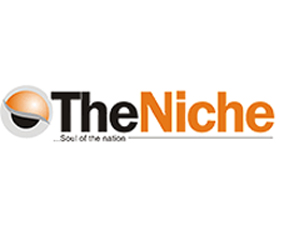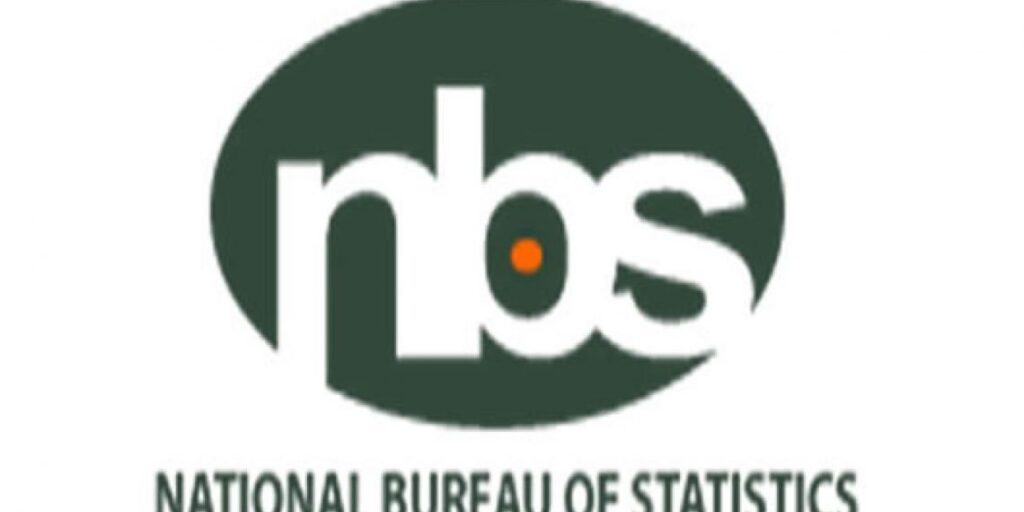Jeph Ajobaju, Chief Copy Editor
Nigeria’s inflation rate dropped for the second straight month to 17.93 per cent in May 2021 from 18.12 per cent in April 2021, according to the latest Consumer Price Index (CPI) report of the National Bureau of Statistics (NBS).
Inflation rate was 18.17 per cent in March 2021. It had risen to 12.40 per cent (year-on-year) in May 2020 or 0.06 per cent points higher than 12.34 per cent in April 2020.
CPI, which measures inflation rate, inched 17.93 per cent (year-on-year) in May 2021 or 0.19 per cent points lower than 18.12 per cent in April 2021.
Food inflation, a closely watched index, dropped from 22.72 per cent in April to 22.28 per cent in May 2021, a second consecutive decline.
The “All items less farm produce” or core inflation – which excludes the prices of volatile agricultural produce – was 13.15 per cent in May, up 0.41 per cent on 12.74 per cent in April.
The highest sectoral rate increases were in
· Pharmaceutical products
· Garments
· Shoes and other footwear
· Hairdressing salons and personal grooming establishments
· Furniture and furnishing
· Carpet and other floor covering.
· Motor cars
· Hospital services
· Fuels and lubricants for personal transport equipment
· Cleaning, repair and hire of clothing
· Other services in respect of personal transport equipment
· Gas
· Household textile
· Non-durable household goods
Surviving Nigeria’s unrelenting inflation rate
Nairametrics reports that Nigeria’s inflation rate has continued its rapid uptick. Over the trailing 20 months, year-on-year (YoY) inflation rate rose from 11.02 per cent in August 2019 to 18.17 per cent in March 2021.
March 2021 inflation rate of 18.17 per cent was the highest since February 2017.
The Central Bank of Nigeria (CBN) acknowledged in its Q4 2020 economic report that a major driver of inflation is food price inflation, which was 22.95 per cent in March 2021, the highest for 15 years.
The last time food price inflation was over 20 per cent was in July 2008 (20.9 per cent), before then it was in October 2005 (24.6 per cent).
The NBS publishes a Selected Food Price Watch report which gives context to how prices of some food items are changing.
Popular food items such as Garri, Maize, Rice, Vegetable Oil, Beans are showing significant YoY price increases of more than 20 per cent.
According to Nairametrics, this excessive spike in food price raises concern, because food-related items comprise 57 per cent of the household expenditure of Nigerians.
In other words, households allocate N57 out of every N100 to food-related items.
By this, a 22.95 per cent rise in food prices means Nigerians now spend over N70 out of every N100 on food-related items. And these food price increases are occurring at a faster pace than incomes are increasing.
Justified concerns about inflation
Since price increases for goods and services continue to outpace income, the question arises about options to mitigate inflation.
Persistently high inflation creates problems for all economic sectors, including
· Businesses (investment uncertainty) resulting in capital expenditure constraints
· Governments (unemployment concerns due to low business investments)
· Consumers (erosion of purchasing power concerns)
· Investors (real returns concerns to protect and grow wealth)
For consumers, concerns about high inflation are about how to avoid erosion of purchasing power.
For investors, it is to ensure that investments are optimally allocated to continue earning real returns to protect wealth, and grow it if possible.
Protect your purchasing power from erosion
Purchasing power loss/erosion means the number of goods and services a consumer can buy for a fixed amount continues to decline over time. Declining purchasing power affects the standard of living and forces individuals to cut back on items.
If you previously could buy a cup of rice for N100 and 20 per cent inflation raises the price to N120, that means you can only afford less than a cup of rice with N100 (now 5/6th of a cup).
The optimal course of action against loss of purchasing power is to increase income as aggressively.
You can negotiate a wage increase, start a side hustle (online retailing, tutoring, et cetera), change jobs, or acquire new qualifications to boost your skills and promote your personal brand.
To increase earnings, you must adopt as many options as possible. Doing nothing is NOT an option, Nairametrics warns.
Protect and grow your wealth
Investors have a variety of reasons for being keen to protect and grow their wealth. These range from desire to earn income in retirement, to desire to transfer wealth to coming generations.
The optimal course of action to protect and grow wealth is to ensure that your investment portfolio is sufficiently diversified to generate positive real returns (total returns of your portfolio must match or be higher than the rate of inflation).
Engage the services of a qualified financial planner to ensure your portfolio is tailored to your individual needs and risk appetite.
Nairametrics reports below the views of traders across asset classes:
Udegbunam Dumebi, Fixed Income Trader at UBA Group
Nigeria’s plan to borrow more can only be supported by increasing interest rates due to investor concerns about earning real returns to account for inflation.
There should be caution against the worsening debt servicing ratio as interest rates increase on higher borrowing.
“Looking at the bond market, we are seeing rates go as high as they were in 2018/2019. Before the last inflation rate release, rates were as low as 10 per cent on the U-curve in the bond market.
“This makes our debt to servicing ratio more expensive, which is a debt issue. For the bond market, rates are increasing as inflation increases.”
Pascal Nkwodimmah, Finance Manager of Opera Nigeria
Surviving inflation would be a factor of how much real investment is within your portfolio.
“Investors can diversify their investment amid rising inflation, directing their savings to real investment such as real estate and gold in order to avoid the impact of hyperinflation.”
Ajibola Akamo, Cryptocurrency Expert and Investment Analyst
“There will be a bullish reaction by stocks and cryptocurrency markets, but the bond market will be the exception.
“Naturally, investors will seek avenues to improve their performances to hedge against inflation. This will lead investors to put more stake on riskier assets such as the stock or crypto market.
“I believe the crypto space is still at its inception and I believe there will be massive adoption in the future which will translate to significant capital gains for long term investors. Bitcoin is a prime example for this scenario.”


